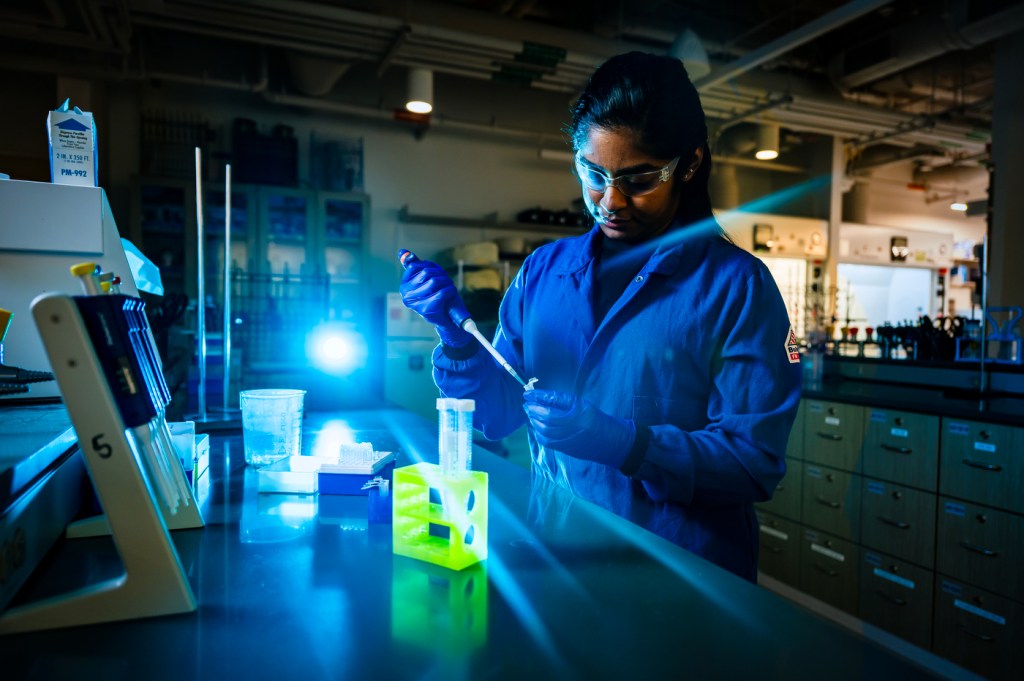Northeastern student went from classroom to cellular molecular biology research co-op
Sumedha Reddy Sudini remembered touring the Centre for Cellular and Molecular Biology as a teen. So when it came time for her to do a co-op, she knew where she wanted to apply.

When she was in high school, Sumedha Reddy Sudini went on a field trip in which her class toured the Centre for Cellular and Molecular Biology.
The lab, located near her hometown in Hyderabad, India, does work in structural, stem cell and molecular biology.
“I was just in grade eight or nine, so it was all intriguing for me,” says Sudini, a fourth-year biology student at Northeastern University. “It was all new and fascinating.”
Sudini always knew she wanted a career in science. So in high school, she reached out to the center and inquired about doing an internship there, but it didn’t have positions for high school students.
But Sudini didn’t forget about the lab.
After doing a clinical co-op at Northeastern, she took a lab course and decided she wanted to do a co-op in a similar setting to build up her research skills. When it came time to apply for co-ops, she remembered her trip to the Centre for Cellular and Molecular Biology. She looked into the lab and found out it was doing work that interested her, so she reached out about doing her co-op there. The lab only had summer internships, but they were able to create a position for her.

The lab’s work was appealing to Sudini, particularly the stem cell research on developing immunotherapies that can be used to treat certain types of cancer.
“I lost my sister to cancer, so when I read about that (work), it was something I wanted to learn more about,” she says.
While on co-op, Sudini spent her time doing research in cellular molecular biology, working specifically on a study designed to see how oxidative stress affects the expression of specific proteins in cells. This is important for understanding the metabolic process.
Editor’s Picks
In this role in this study, Sudini mastered processes like PCR and gel electrophoresis and western blotting, which helped her analyze protein expression during stress responses. She also was involved in the preparation of cell cultures and assisted the Ph.D. students in the lab in injecting hydrogen peroxide into these cultures to induce the stress response they were studying.
Sudini was also involved in documenting the results for the research.
“My work was basically checking the effect of oxidative stress on the expression of heat shock proteins,” she says. “When the body is in stress, how do these cells react and what kind of proteins are expressed? The proteins that we looked at are specifically the ones involved in the metabolic process, so we see how the stress response is affecting the body … and how that in turn is taking effect on the bigger metabolic processes. It could be as simple as digestion or the hormone imbalances people have since stress is related to cortisol levels which is a hormone.”
When Sudini graduates in May, she hopes to find a job that’ll allow her to continue to work in a lab and learn analytical techniques. Eventually, she’d like to get a Ph.D. so she can do the stem cell research that originally sparked her interest in this work.
“I wasn’t really sure if I wanted to do research,” she said. “But after taking a lab course here at Northeastern (and doing this co-op), it really brought out my interest.”











